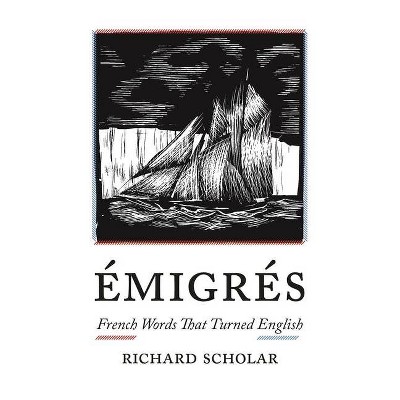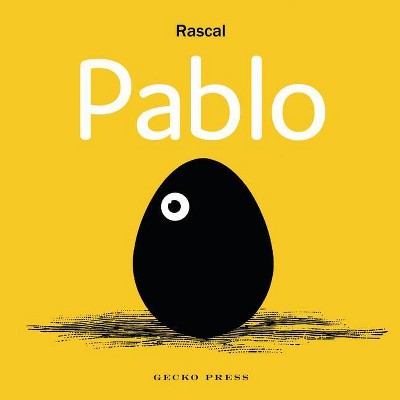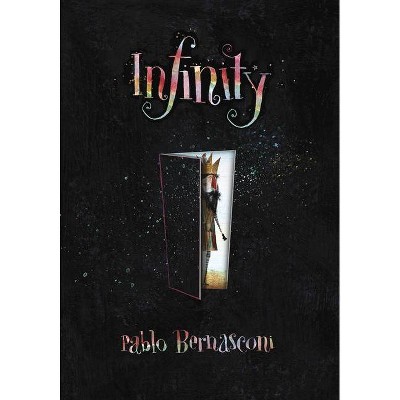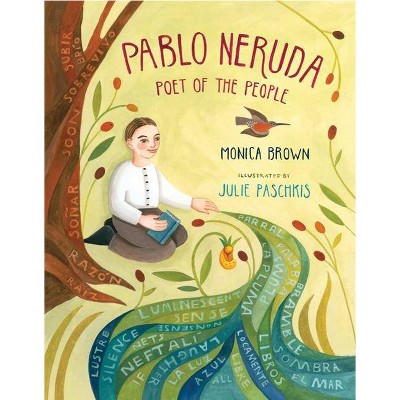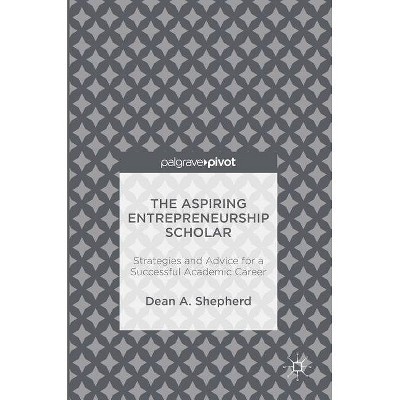Pablo Tac, Indigenous Scholar - (Hardcover)
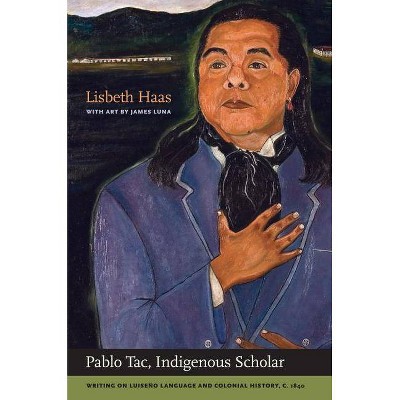
Similar Products
Products of same category from the store
AllProduct info
<p/><br></br><p><b> About the Book </b></p></br></br>"Pablo Tac's life was both tragic and victorious, and his experiences echo down through the years, offering the light of understanding to us in our world today. A thought-provoking book and a must-read for students of indigenous California." <BR>--Ernest Siva, author of "Voices of the Flute: Songs of Three Southern California Indian Nations" <P><BR>"This is an exceptional piece of research and the definitive work on Pablo Tac. For the first time the entire corpus of the known writings of this ground-breaking Native Californian scholar are presented without editing, in their original languages (Latin, Luiseno) and in English translation. Lisbeth Haas presents a lucid and insightful account on the life, times, and significance of this important figure, while James Luna provides provocative commentary and striking images about Indian life today in the footsteps of Pablo Tac. This book belongs in the library of anyone interested in California history, Native Californians, and the Franciscan missions." <BR>--Kent Lightfoot, author of "Indians, Missionaries, and Merchants: The Legacy of Colonial Encounters on the California Frontiers" <P><BR>"Lisbeth Haas must be praised for gathering an exceptional team of scholars for the transcription, editing, and translation of Pablo Tac's Luiseno grammar, dictionary, and history. Haas's introductory essay situates Tac in a global context, defined by the fellow students Tac found in Rome in the 1830s while studying for the priesthood. Performance artist James Luna complements Haas's lucid assessment of Tac's brilliance as an indigenous scholar with a verbal and visual testimony of shared struggles as cultural warriors." <BR>--Jose Rabasa, author of "Without History: Subaltern Studies, the Zapatista Insurgency, and the Specter of History" <P><BR>"The important manuscripts of the young nineteenth-century Luiseno scholar Pablo Tac are available at last to the American public, and most importantly to the people of Tac's homeland. This faithful representation and translation of his work is fascinating in its own right, and enriched further by the insightful introductions by scholar Lisbeth Haas and Luiseno artist and wordsmith James Luna. Tac interweaves his masterful linguistic description and unfinished dictionary of nineteenth-century Luiseno with an illuminating account of Luiseno life and history before and during the mission era. Haas provides an equally interesting description of the scholarly and political environment of Rome where Tac lived, learned, and created from 1834 to 1841. Luna's introduction and a foreword by the Luiseno tribal chair bring a twenty-first century indigenous interpretation to Tac's long-ago life and work. Yet there is a freshness to Tac's writing that is ageless, and makes us wish we could learn even more about this talented young man who participated in so many worlds, and whose life and career were too short." <BR>--Leanne Hinton, author of "Flutes of Fire: Essays on California Indian Languages" <BR><p/><br></br><p><b> Book Synopsis </b></p></br></br>This volume makes available a remarkable body of writings, the only indigenous account of early nineteenth-century California. Written by Pablo Tac, this work on Luiseño language and culture offers a new approach to understanding California's colonial history. Born and raised at Mission San Luis Rey, near San Diego, Pablo Tac became an international scholar. He traveled to Rome, where he studied Latin and other subjects, and produced these historical writings for the Vatican Librarian Cardinal Giuseppe Mezzofanti. In this multifaceted volume, Pablo Tac's study is published in the original languages and in English translation. Lisbeth Haas introduces Pablo Tac's life and the significance of the record he left. She situates his writing among that of other indigenous scholars, and elaborates on its poetic quality. Luiseño artist James Luna considers Tac's contemporary significance in a series of artworks that bring Pablo Tac into provocative juxtaposition with the present day.<br /><br />Transcribed by Marta Eguía, Cecilia Palmeiro, Laura León Llerena, Jussara Quadros, and Heidi Morse, with facing-page translation by Jaime Cortez, Guillermo Delgado, Gildas Hamel, Karl Kottman, Heidi Morse, and Rose Vekony<p/><br></br><p><b> From the Back Cover </b></p></br></br>"Pablo Tac's life was both tragic and victorious, and his experiences echo down through the years, offering the light of understanding to us in our world today. A thought-provoking book and a must-read for students of indigenous California."<br /><br />--Ernest Siva, author of <i>Voices of the Flute: Songs of Three Southern California Indian Nations</i><br /><br /><br /><br />This is an exceptional piece of research and the definitive work on Pablo Tac. For the first time the entire corpus of the known writings of this ground-breaking Native Californian scholar are presented without editing, in their original languages (Latin, Luiseño) and in English translation. Lisbeth Haas presents a lucid and insightful account on the life, times, and significance of this important figure, while James Luna provides provocative commentary and striking images about Indian life today in the footsteps of Pablo Tac. This book belongs in the library of anyone interested in California history, Native Californians, and the Franciscan missions. <br /><br />--Kent Lightfoot, author of <i>Indians, Missionaries, and Merchants: The Legacy of Colonial Encounters on the California Frontiers</i><br /><br /><br /><br />"Lisbeth Haas must be praised for gathering an exceptional team of scholars for the transcription, editing, and translation of Pablo Tac's Luiseño grammar, dictionary, and history. Haas's introductory essay situates Tac in a global context, defined by the fellow students Tac found in Rome in the 1830s while studying for the priesthood. Performance artist James Luna complements Haas's lucid assessment of Tac's brilliance as an indigenous scholar with a verbal and visual testimony of shared struggles as cultural warriors."<br /><br />--José Rabasa, author of <i>Without History: Subaltern Studies, the Zapatista Insurgency, and the Specter of History</i><br /><br /><br /><br />"The important manuscripts of the young nineteenth-century Luiseño scholar Pablo Tac are available at last to the American public, and most importantly to the people of Tac's homeland. This faithful representation and translation of his work is fascinating in its own right, and enriched further by the insightful introductions by scholar Lisbeth Haas and Luiseño artist and wordsmith James Luna. Tac interweaves his masterful linguistic description and unfinished dictionary of nineteenth-century Luiseño with an illuminating account of Luiseño life and history before and during the mission era. Haas provides an equally interesting description of the scholarly and political environment of Rome where Tac lived, learned, and created from 1834 to 1841. Luna's introduction and a foreword by the Luiseño tribal chair bring a twenty-first century indigenous interpretation to Tac's long-ago life and work. Yet there is a freshness to Tac's writing that is ageless, and makes us wish we could learn even more about this talented young man who participated in so many worlds, and whose life and career were too short."<br /><br />--Leanne Hinton, author of <i>Flutes of Fire: Essays on California Indian Languages</i><br /><br /><p/><br></br><p><b> Review Quotes </b></p></br></br><br>"Invaluable. . . . Covered vividly and with a deep understanding. . . . This will be the definitive work on Tac."--Stephen O'Neil "Catholic Historical Review" (1/1/2013 12:00:00 AM)<br><p/><br></br><p><b> About the Author </b></p></br></br><b>Lisbeth Haas</b> is Professor of History and Chair of Feminist Studies at the University of California, Santa Cruz. She is the author of <i>Conquests and Historical Identities in California, 1769-1936</i> (UC Press).<br /><b>James Luna </b>is an internationally known American Indian contemporary artist of Payomkowishum descent. He is a member of the La Jolla Band of Luiseño Indians.
Price History
Price Archive shows prices from various stores, lets you see history and find the cheapest. There is no actual sale on the website. For all support, inquiry and suggestion messagescommunication@pricearchive.us
